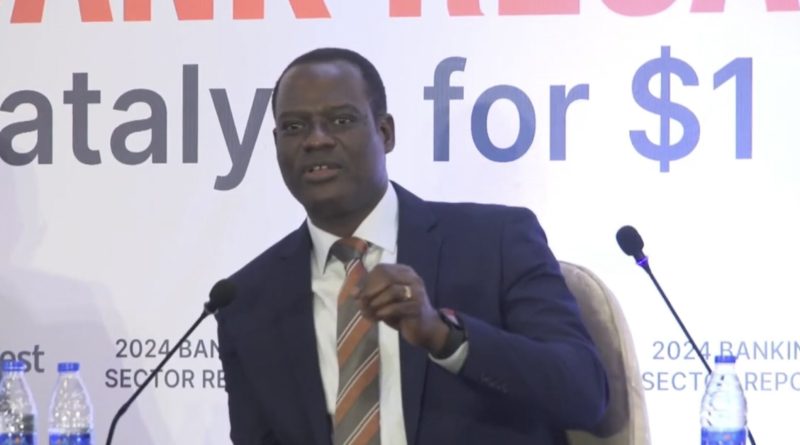Oyedele urges states to use revenue windfall to deepen human development
The chairman of the Presidential Fiscal Policy and Tax Reforms Committee, Taiwo Oyedele, has enjoined state governments to channel their growing revenues towards development in education, healthcare, and infrastructure to ensure shared prosperity among citizens.
Mr Oyedele said on Tuesday at the launch of BudgIT’s State of States 2025 Report in Abuja that states are getting more allocations from the centre than ever before, but citizens are yet to enjoy the impact.
The nation’s treasury has been expanding since the government scrapped petrol subsidies and unified multiple exchange rates in 2023. In September, the Federation Account Allocation Committee disbursed as much as ₦2.1 trillion to the three tiers of government. Statutory revenue and value-added tax accounted for the biggest chunk of the total contribution to the pool.
“Since May 2023, Nigeria has been undergoing seismic economic shifts: the removal of fuel subsidy, naira floatation, the attendant rise in inflation peaking at almost 35 per cent before moderating, and a bold tax reform, among others,” he said.
“States are receiving more money than ever before. But there is a paradox. While governments have more naira, ordinary Nigerians have less disposable income in their pockets. It is a sobering reminder that fiscal abundance does not automatically translate into social prosperity,” Mr Oyedele further stated.
BudgIT’s new report revealed that twenty states now depend on federal allocations for at least 70 per cent of their revenues, implying that more states are currently at the mercy of the revenue shared from the centre for survival than the previous year.
States like Enugu, Bayelsa and Abia reported a remarkable leap in internally generated revenue, posting 381 per cent, 174 per cent and 129 per cent growth, respectively.
Lagos, Ogun, Kwara, Anambra, and Edo likewise recorded a strong performance.
“The real test of progress is whether states can turn the current revenue windfalls into sustainable fiscal space and utilise their resources judiciously to deliver shared prosperity,” Mr Oyedele said.
Despite higher allocations, he described spending patterns as worrisome, saying states executed only two-thirds of their education budgets by spending less than ₦7,000 on each citizen.
He said the trend is worse in the health sector, where implementation was below 62 per cent, translating to only ₦3,500 per citizen.
According to him, 31 states pared down their domestic debt stock.
READ ALSO: Oyedele counters claims of investor frustration over Nigeria’s new capital gains tax
The report pinpointed Lagos and Enugu as the only states mobilising internal revenues that are substantial enough to cover their operating expenses.
States such as Abia, Anambra, Enugu, Ebonyi, and Taraba spent more than 70 per cent of their budgets on capital projects.
He urged states to harmonise taxes, digitise revenue collection, and focus on the informal sector without exacting tax from vulnerable citizens.

